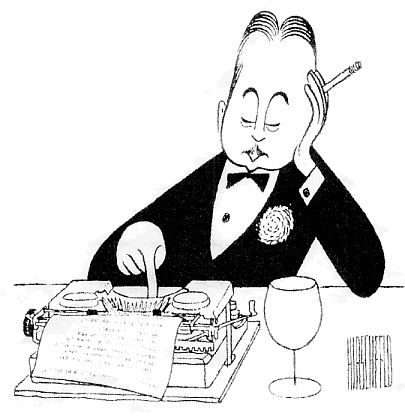Of course it is possible for a man to write a great book from which no one would quote. That is probably happening all the time. But it is because no one has read it. Here we have an author whose vogue in this country, according to statistics, is equal to that of any writer of novels in the world. And as soon as his publicity department stops functioning, I should like to lay a little bet that he will not be heard of again.
XLVI—ON BRICKLAYING
After a series of introspective accounts of the babyhood, childhood, adolescence and inevitably gloomy maturity of countless men and women, it is refreshing to turn to “Bricklaying in Modern Practice,” by Stewart Scrimshaw. “Heigh-ho!” one says. “Back to normal again!”
For bricklaying is nothing if not normal, and Mr. Scrimshaw has given just enough of the romantic charm of artistic enthusiasm to make it positively fascinating.
“There was a time when man did not know how to lay bricks,” he says in his scholarly introductory chapter on “The Ancient Art,” “a time when he did not know how to make bricks. There was a time when fortresses and cathedrals were unknown, and churches and residences were not to be seen on the face of the earth. But today we see wonderful architecture, noble and glorious structures, magnificent skyscrapers and pretty home-like bungalows.”
To one who has been scouring Westchester County for the past two months looking at the structures which are being offered for sale as homes, “pretty home-like bungalows” comes as le mot juste. They certainly are no more than pretty home-like.
One cannot read far in Mr. Scrimshaw’s book without blushing for the inadequacy of modern education. We are turned out of our schools as educated young men and women, and yet what college graduate here tonight can tell me when the first brick in America was made? Or even where it was made?… I thought not.
Well, it was made in New Haven in 1650. Mr. Scrimshaw does not say what it was made for, but a conjecture would be that it was the handiwork of Yale students for tactical use in the Harvard game. (Oh, I know that Yale wasn’t running in 1650, but what difference does that make in an informal little article like this? It is getting so that a man can’t make any statement at all without being caught up on it by some busybody or other.)

